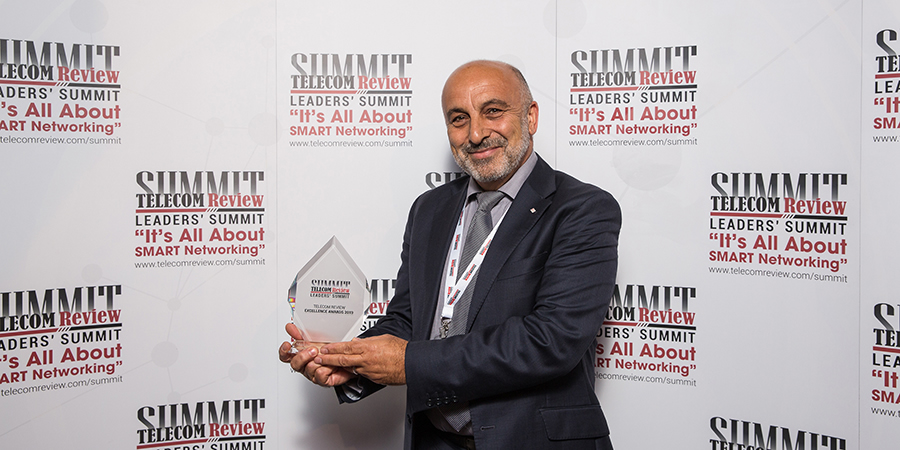Charlie Warda, head of Regional Sales, Voice and Mobile Services at Deutsche Telekom Global Carrier, provided insights into the organization’s present and future goals.
First of all, can you tell us about Deutsche Telekom Global Carrier’s strategy for the Middle East?
At the moment, Deutsche Telekom Global Carrier (the international wholesale arm of Deutsche Telekom) provides roaming enabling services to several operators in the Middle East and Africa, directly and indirectly, as well as peering with larger groups for traffic exchange. For many years we have also provided bilateral voice and transit services, IP connectivity for access to internet and content, together with secure European and global access circuits to Middle East operators serving enterprise customer both in the region and across our footprint.
With a relatively young demographic population, together with the wish for more content and higher service levels, we perceive great untapped potential in the Middle East and will continue to explore possibilities and expand on our delivery. This is a large and diverse area with differing telco requirements. Although the market is largely saturated in terms of traditional services, we detect much ongoing innovation and initiatives. What is apparent is that users are keen on content and smart services – and they expect more and more variety. With our expertise and comprehensive global network, we are in a prime position to help operators fulfill these needs on an international basis. We look forward to supporting services that will give their customers the best in connectivity and experience.
Deutsche Telekom’s 5G network went live in many German cities in 2019. What are your plans for further 5G deployment?
5G is a crucial step forward, and will play a large role in expanding the IoT sector. It will be the catalyst for more services that rely on security, capacity, speed and availability. At Deutsche Telekom Global Carrier, we are continually investing in ways to enhance those same capabilities by every possible means. For example, we have implemented Regional Packet Gateways at strategic global locations to allow faster, smarter and more secure data transfer. We are also leading in the field of end-to-end QoS which is seen as another enabler paving the way for growth in IoT. Our IPX network functionalities are persistently expanded and ensure roaming that maximizes an operator’s ROI.
Deutsche Telekom is a leading European telco. What trends and demands are emerging in the EU in comparison to the Middle East?
Both regions have similarities in trends and demands such as smart solutions for cities and in the automotive field. Both are seeing an increase in data volumes where speed, efficiency and security are of paramount concern. In Europe there has been much operator consolidation and closer partnerships in recent years. This too is appearing in the Middle East. One difference is perhaps in the area of regulation, which affects data usage, among other things. Here, what is applicable in Europe may not be so in the Middle East.
In the Middle East region several group operators are attempting to operate in a similar way to us. That is, Deutsche Telekom Global Carrier delivers all roaming enabling services including connectivity, firewalls, messaging and roaming, together with voice services. This is an approach that brings about efficiency and more value for money. In this area, we are a leader and are happy to connect with any regional carriers to enable this.
At the moment, IoT is seen as our greatest opportunity but it is nothing without connectivity. As the number of IoT devices increases, how is Deutsche Telekom supporting the rise in demand for data and connectivity?
We are indeed experiencing a massive and unprecedented growth in data demands. To cater to this demand, we delivered the first multiple 100 Gb IPX ports for our customers and will continue to expand on this. In addition, as I said earlier, we are able to route transcontinental data roaming traffic locally with our Regional Packet Gateways. And we are relentlessly working to enhance our already comprehensive portfolio of security solutions. Of course, connectivity and availability mean nothing unless the core networks can manage these volumes, something we can provide in high quality. The Group is also in the unique position of operating global international networks with our own MNO subsidiaries. This gives us both wholesale and retail experience that can tap into local IOT initiatives. Furthermore, we recognize that partnering is crucial to offer value-added services and greater reach. In the latter case we are working with partners to extend our presence and offer our products and services on a wider scale.
Deutsche Telekom has the largest fiber optic network in Germany. Do you think fiber is the backbone of smart cities, 5G, IoT and other emerging technologies?
Yes, Deutsche Telekom has the largest fiber optic network in Germany, which means we are already in place over extremely wide areas to support smart city as well as other technologies. Because of our network’s ubiquitous positioning, it also makes it easier and more cost-effective to implement those technologies. A city-wide fiber backbone is essential to provide a connectivity infrastructure that will enhance two-way communication, services, transport and traffic management, sensors and all the other things that enhance private and business services. We do, however, recognize the need for wireless connectivity, whether it be narrowband, 5G radio access networks and/or WiFi.









